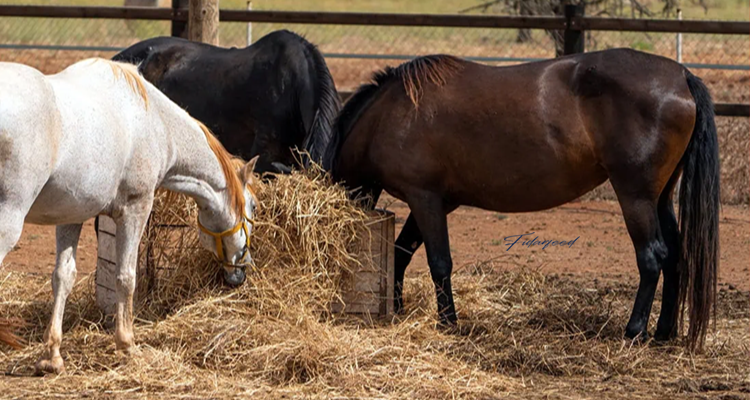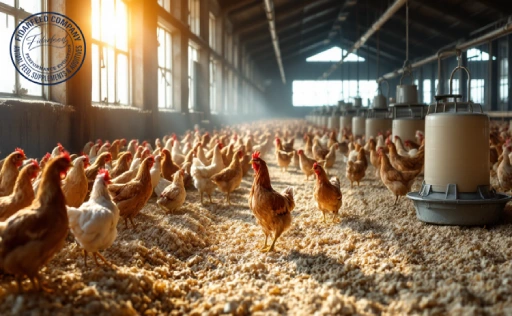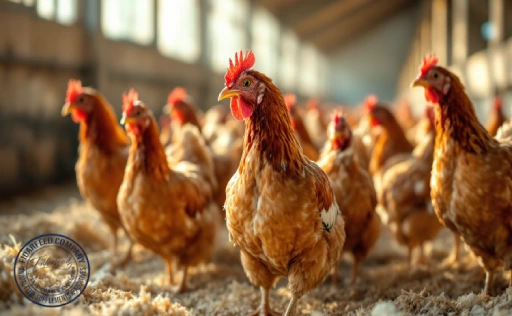As any experienced horse breeder knows, proper nutrition is the backbone of a healthy and thriving herd. Horses, whether young foals or mature adults, have unique dietary needs that must be met to ensure optimal growth, performance, and overall well-being. Feeding horses correctly isn’t just about providing enough food—it’s about providing the right food at the right time. This comprehensive guide will explore the nutritional needs of horses at every stage of their life, from foals to adults, and offer practical tips on how to feed your horses for long-term health and success.
Understanding Horse Nutrition: A Key Element of Healthy Growth and Development
Feeding horses goes beyond just filling their feed buckets. Proper horse nutrition plays a critical role in maintaining their health, energy, and performance. Understanding the fundamental components of a horse’s diet—such as energy, protein, fiber, vitamins, and minerals—is key to keeping your horses in top condition. Each stage of a horse’s life, from birth to adulthood, has different nutritional requirements, and feeding them the right balance at each stage can prevent growth issues, illness, and performance setbacks.
Learn more about: Probiotic Supplement for Horses and foals
Good nutrition ensures that your horse has the necessary building blocks to grow, stay strong, and perform at their best, whether they’re working hard in the field or simply being part of a leisure ride.
Feeding Foals and Young Horses: Nutritional Needs for Optimal Growth
Foals are growing rapidly during their first year, and their nutritional needs are unique. The first few months of a foal’s life are crucial for laying the foundation of healthy bones, muscles, and organs. Colostrum from the mare is essential during the first 24-48 hours of life to provide immunity, but after that, foals should start transitioning to solid food.
Learn more about: Holsteiner Horses: Strength and Stamina for Heavy Work
A foal’s diet should consist of a good-quality foal starter feed that is rich in energy and protein, as well as highly digestible fiber to support rapid growth. Proper feeding of foals also helps in the development of their skeletal system, particularly in breeds prone to developmental orthopaedic diseases (DOD), such as angular limb deformities.
In addition to high-quality concentrates, foals should also have access to high-fiber hay and clean water at all times. For foals under six months, limiting their intake of concentrates is important to avoid excessive growth that can stress their immature bones.
Feeding Adult Horses: Balancing Energy, Protein, and Fiber for Long-Term Health
Adult horses have more stable nutritional needs compared to foals. However, their diet should still be carefully managed to support their long-term health and productivity. The three key components of a balanced adult horse diet are energy, protein, and fiber.
-
Energy: Adult horses need enough calories to maintain a healthy weight and energy levels, but the amount varies based on activity level. Working horses, such as racehorses or those used in heavy farm work, will require more energy compared to a retired or less active horse.
-
Protein: Protein supports muscle development, tissue repair, and overall health. Adult horses typically require 10-12% protein in their diet, depending on their workload and health needs.
-
Fiber: Fiber is crucial for digestive health and should form the bulk of a horse’s diet. High-fiber hay, such as timothy, is an excellent choice to maintain a healthy digestive system.
Learn more about: Essential Tips to Prevent skin diseases in horses
For active adult horses, additional concentrates like oats or specially formulated feeds can supplement their diet to meet energy demands. For older horses or those with dental issues, softer feed options or soaked hay might be necessary to make chewing easier.
How to Choose the Right Feed for Different Stages of a Horse’s Life
Selecting the right feed for your horse can be daunting, especially if you’re a beginner. It’s essential to match the type of feed with your horse’s age, activity level, and health condition. Here’s a basic guide:
-
Foals: Foals require high-quality foal starter feed, which has higher protein and energy content to promote growth. Consult your veterinarian for specific recommendations.
-
Yearlings and Two-Year-Olds: As young horses approach maturity, their protein and energy needs begin to stabilize, though they still require a growth-appropriate feed to support muscle and bone development.
Learn more about: Best Feed for Young Horses: Nutrition Tips for Healthy Growth and Development
-
Adult Horses: Depending on the activity level (i.e., work, leisure, or retired), choose from maintenance or performance feeds. Horses involved in light activities may do well on grass hay and minimal concentrates, while active horses might need additional grain or a specially formulated concentrate.
-
Older Horses: Senior horses often benefit from senior feeds, which are designed to be easier to chew and digest. These feeds are usually lower in fiber but enriched with added nutrients.
Common Feeding Mistakes and How to Avoid Them in Horse Care
Feeding horses isn’t always intuitive, and there are common mistakes that many breeders make, especially those new to the field. Some of the most common feeding mistakes include:
-
Overfeeding or Underfeeding: This can lead to obesity or malnutrition. Be mindful of portion sizes and adjust feed according to activity levels and body condition.
-
Lack of Quality Forage: Horses need good-quality hay for proper digestion. Poor-quality hay can lead to colic or impaction.
Learn more about: Choosing the Right Horse Breed for Breeding: A Comprehensive Guide
-
Inconsistent Feeding: Horses thrive on a consistent feeding schedule. Random or erratic feeding times can disrupt their digestive system, causing discomfort or even colic.
-
Not Considering Health Issues: Horses with conditions such as Cushings, metabolic syndrome, or laminitis have specific dietary needs. Ignoring these can worsen their health problems.
The key to avoiding feeding mistakes is staying informed and consulting your veterinarian or equine nutritionist regularly.
Supplementing Horse Diets: When and How to Use Additives
Sometimes, horses need more than just hay and grain. Supplements can help meet specific nutritional gaps or boost performance. Common supplements include:
-
Electrolytes: Useful for horses working in hot conditions or during heavy physical exertion.
-
Vitamins and Minerals: These help maintain optimal health, especially for horses on a restricted diet or those with specific deficiencies.
-
Joint Support: Horses involved in heavy work may benefit from joint supplements to maintain healthy cartilage and prevent arthritis.
Learn more about: The Hidden Stress in Horses: How Human Actions Affect Welfare
When using supplements, always consult with a veterinarian to ensure you’re providing what your horse needs without over-supplementing.
Managing Special Diets for Horses with Health Issues or Performance Demands
Certain horses may require special diets due to age, health conditions, or performance demands. For instance:
-
Horses with Metabolic Syndrome: These horses require low-sugar, low-starch diets to prevent insulin resistance and laminitis.
-
Performance Horses: Horses in rigorous training or competition require higher-energy diets to maintain stamina and muscle mass.
-
Senior Horses: Older horses often need diets that are easier to digest and may require higher amounts of fiber or special senior feeds.
The Importance of Fresh Water: Hydration’s Role in a Horse’s Diet
Water is one of the most critical components of a horse’s diet, and many owners overlook its importance. Horses need access to fresh, clean water at all times, especially after exercise.
Learn more about: The Ultimate Guide: How to Treat Gingivitis in Horses and Prevent Recurrence
A lack of proper hydration can lead to colic, kidney failure, and other serious health issues.
How to Adjust Your Horse’s Diet with Changing Seasons and Activity Levels
As the seasons change, so do the nutritional needs of your horse. In colder months, horses need more energy to stay warm, while in warmer months, their activity levels may decrease, and so should their calorie intake. Adjusting your horse’s diet based on their changing needs will help prevent obesity or nutrient deficiencies.
Final Thoughts: Feeding Horses Right for a Lifetime of Health and Performance
Feeding horses is more than a daily task; it’s an investment in their long-term health and success. From foals to adults, proper nutrition ensures that your horses will grow strong, stay healthy, and perform at their best. By understanding your horse’s nutritional needs at each stage of life, selecting the right feed, and avoiding common mistakes, you’re setting your horses up for a lifetime of success.
Remember, feeding your horse correctly isn’t just about what’s in the feed—it’s about understanding how to balance the nutrients and providing consistency in your feeding routine. Keeping your horse’s diet on track will give them the best foundation for health, productivity, and longevity.











